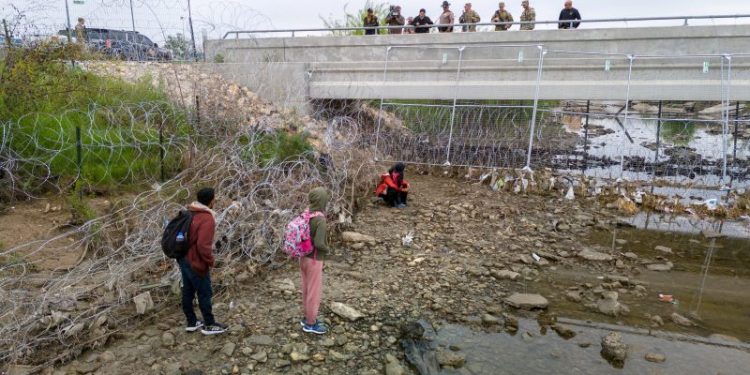The recent Supreme Court decision to allow Texas to arrest and deport migrants has stirred controversy and debate across the nation. The ruling, which granted Texas the authority to detain migrants suspected of crossing the border illegally, marks a significant escalation in the state’s efforts to curb illegal immigration. While some see the decision as a necessary step to protect national security and uphold immigration laws, others view it as an infringement on the rights of migrants and a potential breeding ground for abuse.
At the heart of the debate is the question of how to balance national security concerns with the protection of individual rights. The Supreme Court’s decision reflects the ongoing struggle to navigate the complex legal and ethical dimensions of immigration policy in the United States. While the government has a legitimate interest in safeguarding its borders and enforcing immigration laws, it must also ensure that the rights and dignity of migrants are respected in the process.
One of the main concerns raised by critics of the Supreme Court’s decision is the potential for abuse and discrimination in the enforcement of the law. The ruling essentially gives Texas the power to detain individuals based solely on suspicion of illegal entry, without necessarily providing them with due process or the opportunity to present their case. This lack of procedural safeguards raises fears that migrants, particularly those from marginalized or vulnerable communities, could be targeted unfairly and subjected to harsh treatment.
Moreover, the decision could have far-reaching implications for the relationship between state and federal authorities in matters of immigration enforcement. By allowing Texas to take matters into its own hands and bypass federal immigration agencies, the ruling sets a precedent that could pave the way for other states to pursue similar approaches. This fragmentation of immigration enforcement raises concerns about consistency and accountability in the application of immigration laws, potentially leading to a patchwork of conflicting policies and practices across the country.
In addition to the legal and procedural implications of the ruling, there are also broader ethical considerations at stake. The treatment of migrants, regardless of their legal status, speaks to the values and principles that guide our society. By authorizing Texas to arrest and deport migrants without the same level of oversight and accountability as federal agencies, the Supreme Court risks condoning a system that prioritizes enforcement over fairness and compassion.
Ultimately, the Supreme Court’s decision to clear the way for Texas to arrest and deport migrants underscores the complexity and contentiousness of immigration policy in the United States. As the nation grapples with these issues, it is essential to strike a balance between security imperatives and respect for human rights. Only by upholding the rule of law and safeguarding the dignity of all individuals can we aspire to build a more just and humane immigration system.

















